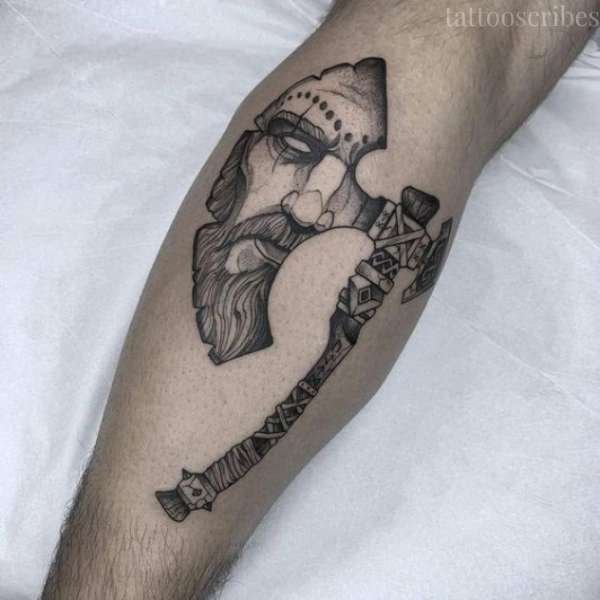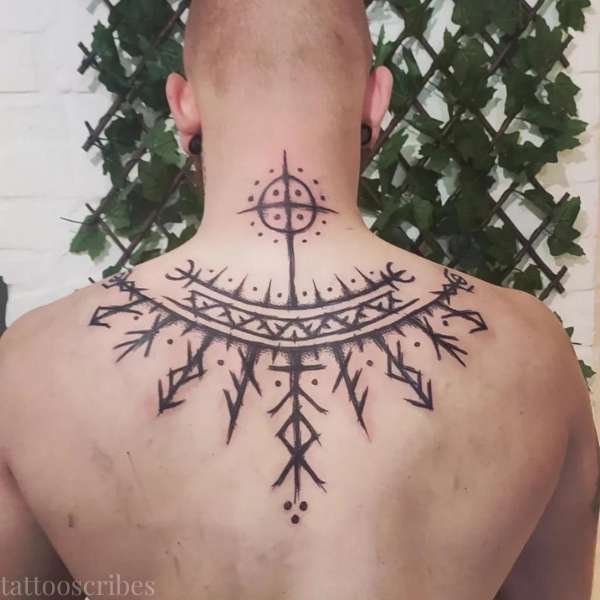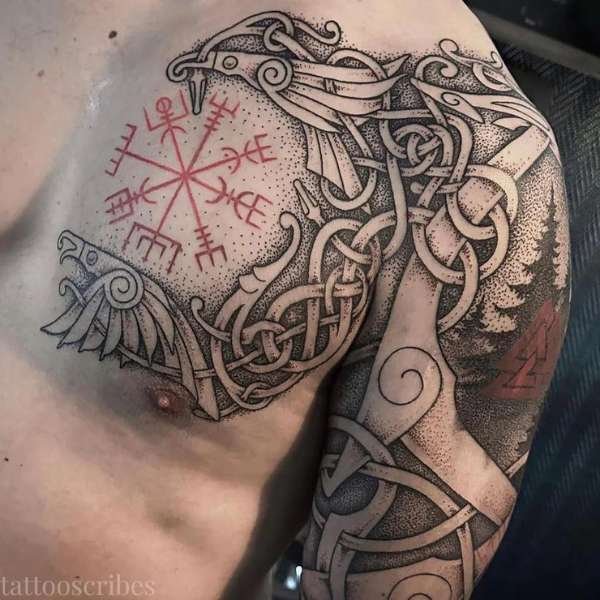Viking tattoos are not just cool designs; they carry deep meanings beyond ink. These powerful symbols can represent strength, protection, and spirituality.
Whether you’re considering a Viking tattoo for its historical significance or connection to personal values, it’s more than just body art—it’s a form of self-expression.
Keep reading to explore the hidden meanings behind these tattoos and their cultural impact.

What Do Viking Tattoos Mean?
A Viking tattoo meaning represents courage, loyalty, and faith in fate. It’s a mark of inner strength and readiness to face life’s battles with determination and pride.
General Symbolism of Viking Tattoos
- Courage – Reflects fearlessness and the will to overcome hardship.
- Honor – Represents loyalty to family, clan, and values.
- Protection – Invokes Norse symbols to guard against harm.
- Fate (Wyrd) – Belief in destiny guiding life’s path.
- Strength – Embodies endurance and warrior resilience.
- Spiritual Power – Connects the bearer to Norse gods and ancestral spirits.
You may also like below posts:

Cultural Meanings of Viking Tattoos
- Norse Warriors – Tattoos were a sign of bravery and battlefield protection.
- Runes and Symbols – Each rune carried magic and fate-altering power.
- Mythology – Designs honored gods like Odin, Thor, and Freyja.
- Sailor Protection – Vikings believed tattoos safeguarded them at sea.
- Afterlife Belief – Markings symbolized the journey to Valhalla after death.

Viking Tattoo Variations and Designs
- Vegvísir (Compass) – Guides you safely through life’s storms.
- Helm of Awe (Ægishjálmur) – Symbol of invincibility and protection.
- Odin’s Ravens (Huginn & Muninn) – Wisdom and spiritual insight.
- Yggdrasil (Tree of Life) – Interconnectedness of all existence.
- Valknut – Represents life, death, and rebirth.
- Runes – Each carries a personal or magical meaning.
Read more about choosing the right Viking tattoo artist here.
Color Variations of Viking Tattoo
- Black/Grey – Strength and endurance.
- Red – Courage and energy.
- Blue – Spiritual protection and trust.
Explore more aftercare tips here.

Other Symbolic Meanings of Viking Tattoos
- Transformation – Overcoming fear and personal trials.
- Spiritual Growth – Seeking wisdom through experience.
- Unity – Connection to community and shared history.
- Legacy – Honoring ancestors and their strength.
- Freedom – Living fearlessly and following one’s destiny.
Meaningful Placement Ideas
- Chest – Courage and personal pride close to the heart.
- Arm/Forearm – Strength, visibility, and readiness for battle.
- Back – Spiritual protection from unseen forces.
- Leg/Calf – Connection to journeys and exploration.
- Neck/Behind Ear – Symbolic of divine whisper or intuition.
Frequently Asked Questions About Viking Tattoos
What does a Viking tattoo symbolize?
It stands for courage, honor, and destiny guided by Norse mythology.
Is it okay to get a Viking tattoo today?
Yes, as long as it’s done respectfully toward Norse heritage.
What is the most powerful Viking symbol?
The Helm of Awe is often seen as the strongest protective symbol.
Do Viking tattoos have religious meaning?
Yes, they reflect beliefs in Norse gods, fate, and life after death.
What are the best Viking tattoos for protection?
The Vegvísir and Helm of Awe are both known as powerful talismans.
Are Viking tattoos only for men?
No, many women choose Norse designs for empowerment and resilience.
Final Verdict
Viking tattoos carry deep cultural significance, representing strength, courage, and connection to nature.
Whether honoring heritage or embracing personal meaning, these timeless symbols offer a powerful way to express resilience and adventure.
Please choose your design thoughtfully and respect its origins for a significant tattoo.
